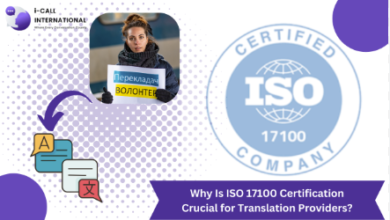How Relationship Coaching Can Help You Navigate Challenges

Every relationship faces obstacles. Whether you’re dealing with communication breakdowns, trust issues, or simply feeling disconnected from your partner, these challenges can feel overwhelming. But what if you had a skilled guide to help you work through them?
A relationship coach provides exactly that—professional support designed to help couples and individuals build stronger, healthier connections. Unlike therapy, which often focuses on healing past wounds, relationship coaching is forward-looking, emphasizing practical tools and strategies for creating the relationship you want.
Identifying Common Relationship Challenges
Most couples encounter similar roadblocks that can derail even the strongest partnerships. Communication problems top the list, with partners often talking past each other rather than truly listening. Conflict resolution becomes another major hurdle when disagreements escalate into arguments that leave both people feeling unheard and frustrated.
Trust issues can also create significant barriers. Whether stemming from past betrayals, financial disagreements, or simply different life goals, these challenges can create distance between partners. Many couples also struggle with intimacy—not just physical, but emotional connection that makes relationships feel meaningful and secure.
Life transitions add another layer of complexity. Career changes, parenting responsibilities, or caring for aging parents can shift relationship dynamics in unexpected ways. Without proper navigation tools, these natural life changes can strain even the most committed partnerships.
Proven Coaching Techniques That Work
A skilled relationship coach employs various evidence-based methods to help couples overcome their challenges. Active listening exercises teach partners how to truly hear each other’s perspectives without immediately jumping to defensive responses. These techniques help create space for understanding rather than judgment.
Coaches also introduce communication frameworks that structure difficult conversations. The “soft startup” approach, for example, helps partners express concerns without triggering their partner’s defensive mechanisms. Learning to use “I” statements instead of “you” accusations can transform how couples discuss sensitive topics.
Conflict resolution skills form another cornerstone of relationship coaching. Coaches help partners identify their underlying needs and values, making it easier to find solutions that work for both people. Rather than viewing disagreements as battles to win, couples learn to see them as opportunities to understand each other better.
The Transformative Benefits of Coaching
Working with a relationship coach delivers measurable improvements in relationship satisfaction. Couples report feeling more connected and understood after learning proper communication techniques. They develop confidence in their ability to work through problems together rather than feeling stuck in recurring patterns.
Coaching also helps partners rediscover what drew them together initially. By focusing on strengths and positive aspects of the relationship, couples often experience renewed appreciation for each other. This shift in perspective can reignite intimacy and emotional connection.
Perhaps most importantly, relationship coaching provides couples with lifelong skills. The tools and strategies learned during coaching sessions continue benefiting the relationship long after the formal coaching relationship ends. Partners feel equipped to handle future challenges independently.
See Also: Home Automation Installation: Simplifying Your Life with Smart Tech
Finding the Right Relationship Coach
Choosing a relationship coach requires careful consideration of several factors. Look for professionals with relevant training and certifications in relationship coaching or counseling. Experience working with couples facing similar challenges to yours can be particularly valuable.
The coaching style should align with your preferences and comfort level. Some coaches take a more directive approach, while others facilitate your own discovery process. Initial consultations help you determine whether the coach’s personality and methods feel like a good fit.
Practical considerations matter too. Consider the coach’s availability, session format (in-person or virtual), and fee structure. Many coaches offer package deals that can make ongoing support more affordable.
Building Stronger Relationships Through Professional Support
Relationship coaching offers couples a structured path toward deeper connection and better communication. Rather than struggling alone with recurring problems, partners gain access to proven strategies and professional guidance that can transform their relationship dynamics.
The investment in coaching often pays dividends for years to come. Couples who learn effective communication and conflict resolution skills report greater relationship satisfaction and resilience when facing future challenges. They develop confidence in their ability to work through difficulties together.
If your relationship is facing challenges that feel too big to handle alone, consider reaching out to a qualified relationship coach. With the right support and commitment from both partners, even the most troubled relationships can evolve into thriving partnerships built on mutual understanding and respect.




